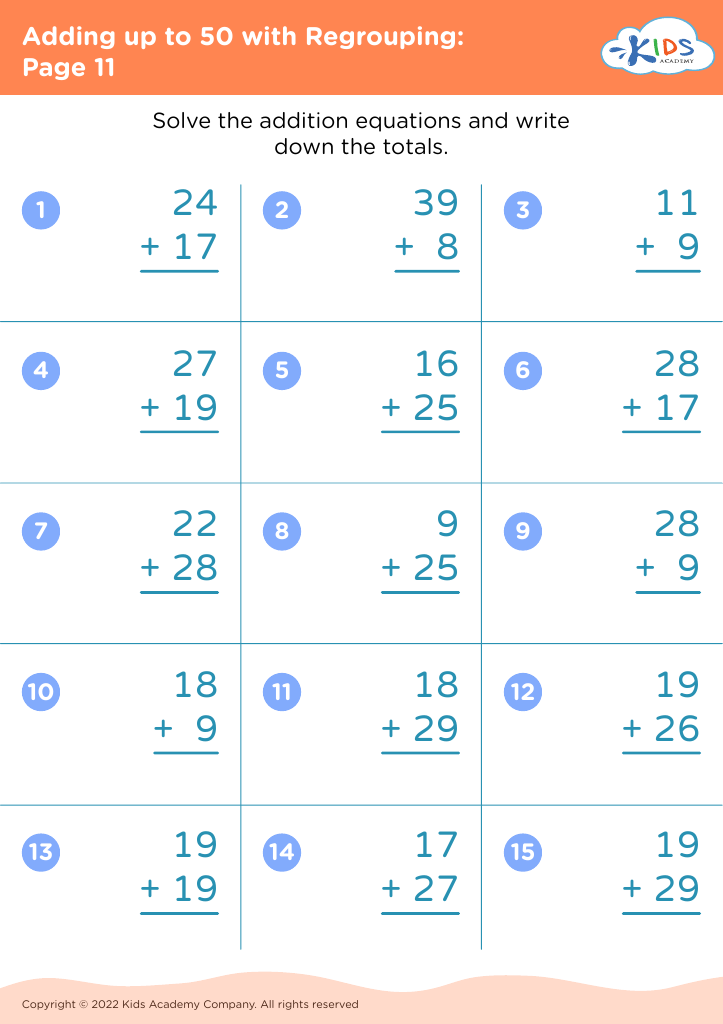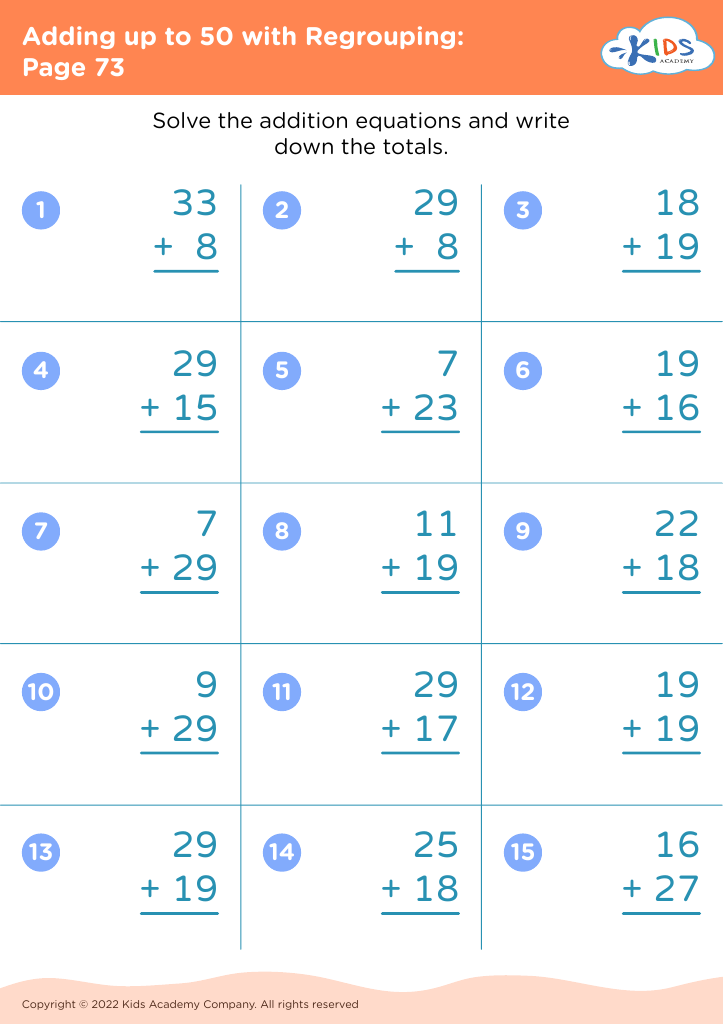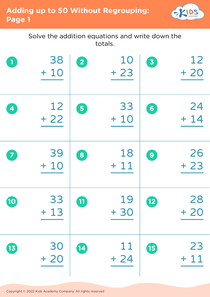Shape Recognition Adding up to 50 with Regrouping Worksheets for Ages 7-8
6 filtered results
-
From - To
Enhance your child's math skills with our Shape Recognition Adding Up to 50 with Regrouping worksheets, designed specifically for ages 7-8. These engaging worksheets aim to build a strong foundation in mathematics while introducing essential shape recognition concepts. Children will practice adding numbers up to 50, mastering regrouping techniques and improving their problem-solving abilities. Each worksheet incorporates fun shapes to engage young learners, making math enjoyable and interactive. With a focus on visual understanding, these activities promote critical thinking and boost confidence in early math skills. Perfect for both classroom settings and at-home learning, these resources ensure a comprehensive learning experience.
Shape recognition and addition with regrouping are crucial skills for children aged 7-8, and parents and teachers should prioritize these learning areas for several reasons.
Firstly, shape recognition is foundational for spatial reasoning and geometry. Understanding shapes and their properties enhances critical thinking skills and boosts future mathematical understanding. Recognizing shapes can also aid in everyday tasks, such as constructing objects, arranging spaces, or even interpreting information in graphs and forms.
Secondly, mastering the concept of addition with regrouping is essential as it lays the groundwork for more complex arithmetic operations. At this age, children move beyond simple addition to more advanced concepts like subtraction and multiplication. Regrouping teaches them how to handle larger numbers effectively, promoting flexibility in problem-solving and reinforcing place value concepts.
By engaging with these skills, parents and teachers foster a positive attitude toward math and learning. Encouraging practice through games and activities can make learning enjoyable, helping kids build confidence in their abilities. Ultimately, a strong foundation in shape recognition and regrouping equips children with the tools they need for academic success and everyday life, setting the stage for lifelong learning and problem-solving skills.





















